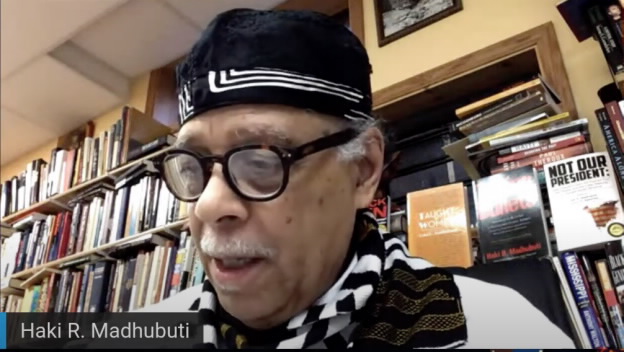
By ENRICO DENARD
The 16th National Black Writers Conference opened on March 30th, gathering writers, scholars, and literary activists to discuss the emerging themes and pressing issues in Black American and African literature.
The first-day keynote for the four-day event, hosted by the Center for Black Literature at Medgar Evers College, featured a discussion on the “beautiful struggles” of authorship in Black and African communities, through an interview of author Haki Madhubuti, with Keith Gilyard as the interviewer. The conversation was moderated by English Professor Joanne Gabbi.
Gilyard, professor of English and African American Studies at Penn State University, helped initiate the event at Medgar Evers back in 1986.
The National Black Writers Conference aims to spotlight stories of the contemporary and the past struggles of Black and African writers. Their messages help enlighten younger authors on the meaning of persistence, so as to inspire them to overcome their obstacles as Black writers.
Guest speaker and poet Nikki Finney set the stage for the discussion, opening with her poem called, “There is a poet brother standing in the middle of a circle reading to black people.” Her verse continues, “he is draped in African fabric, in Malcolm X Shabazz Park. Nobody has a cell phone in their hand and their eyes are watching him, staying near his words.”
Haki Madhubuti, who was dressed in African fabric, spoke to the 202 livestream viewers about his rocky past growing up poor, losing his mother at 16 years old, then leaving his home a year later to pawn everything he owned and go to serve in the U.S military from 1960 to 1963. He served despite having a heart condition.
“I went in, and was not supposed to actually be in the military, but it was a poor boy’s answer to unemployment,” he said.
The writings of Madhubuti, as seen in works like “Don’t Cry, Scream” (1969) and “Black Men: Obsolete, Single, Dangerous?” (1990), center on the theme of Black struggle. He was inspired by his time in the army, but the poet says his passion for Black literature was ignited after numerous altercations with his White and intransigent fellow soldiers.
He almost received a dishonorable discharge for fighting, but changed the course of his experience after being sent to Fort Sheridan in Illinois, where he began to read in his free time.
The author recalls, “Langston Hughes was the person, a great poet, that helped me through those days. I began my process reading Arna Bontemps and Langston Hughes’ anthology: Poppo and Fifina, and their words fed me each day as I was in between the Korean and Vietnam Wars.”
Born Donald Luther Lee, Haki Madhubuti changed his name after traveling to Africa in 1974. Haki means “justice” and Madhubuti means “precise, accurate, and dependable.”
After serving, Madhubuti began to focus on writing, specifically on themes of Black struggle. He was awarded the American Book Award, the Kuumba Workshop Black Liberation Award, the Broadside Press Outstanding Poet’s Award, and the National Endowment for the Arts and Humanities.
The future days of the four-day program will focus on topics of Black identity, sexuality, and feminism, and will also feature a poetry slam by the Green Earth Poets Cafe organization and readings by more authors of Black struggle and African Diaspora literature.
